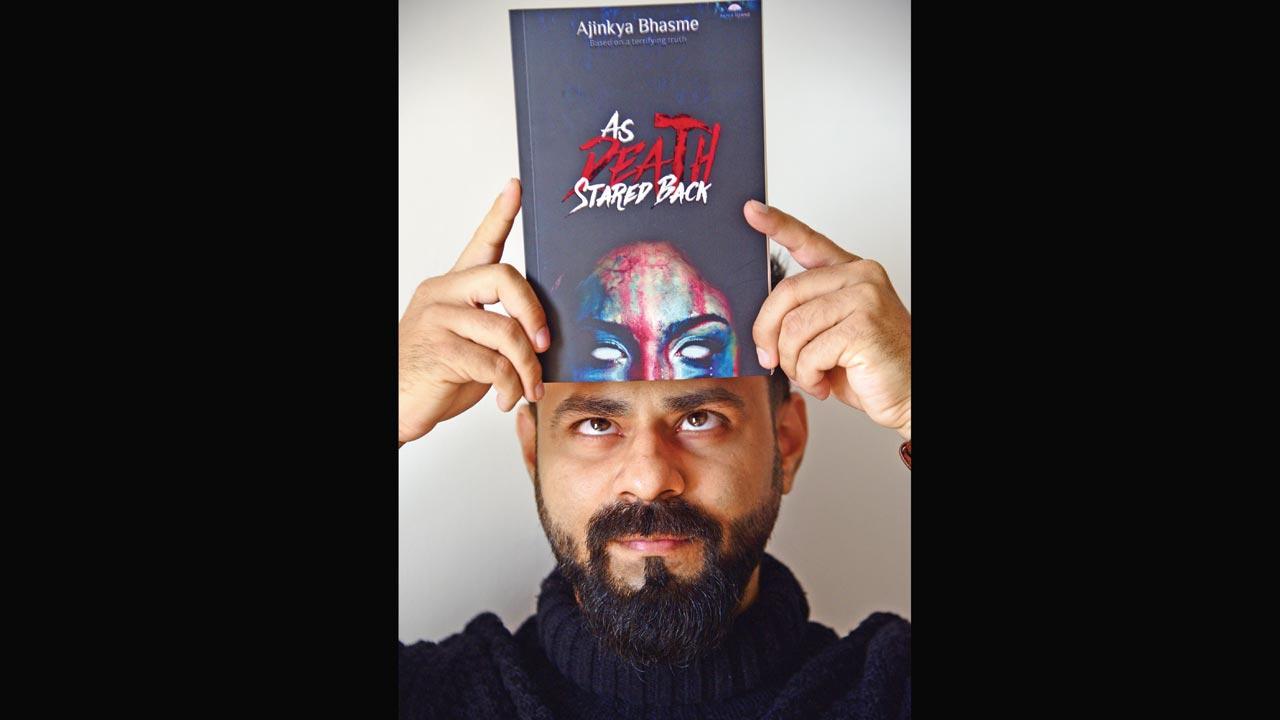Home / Sunday-mid-day / / Article /
Happy to help
Updated On: 30 January, 2022 09:21 AM IST | Mumbai | Anju Maskeri
The former lead scientist at a pharmaceutical giant who helped make a drug instrumental in treating black fungus is now using scientific formulae to pursue his literary dreams

The love for storytelling started when scientist Ajinkya Bhasme’s criminal lawyer mother told him bedtime tales rooted in her own experiences. Pic/Pradeep Dhivar
Bedtime stories often help shorten the empty time between when you get between the sheets and when you drift off to sleep. While fairytales and fables have been the norm for most people in their childhood, Ajinkya Bhasme was admittedly an exception. “I found run-of-the-mill stories too fantastical and therefore, unrelatable,” he says. Since there is no one -size-that-fits-all when it comes to sleep, his mother, a criminal lawyer, began weaving stories rooted in her own experiences, all of them, deliciously dangerous. “Having dealt with sociopaths and murderers, she narrated in a way that was intriguing yet acceptable to a child. I don’t know how she did it,” he laughs. So, the threat for a young Bhasme was never, ‘Go to sleep or else the monster will come for you. It was more like, ‘the child abductor might come for you’. “And that was a good enough threat because there are such people around.”
The 30-year-old is glad that he turned out just fine despite his appetite for morbid stories. At age 12, he published his first novel titled Boo in the well of dangers. “In that book, I created a fictional world called ‘the non existing island’ where there is magic, darkness and joy,” he shares. Running parallel to his literary leanings was his scientific pursuit. After acquiring a degree in chemical engineering from IIT Bombay, he went to work at pharmaceutical firm Dr Reddy’s Lab for five years. As the lead scientist specialising in Mathematical Modelling and Simulation for the pharmaceutical company, he became part of the team that created Amphotericin B, an antifungal medication used for leishmaniasis, which was also administered to patients with mucormycosis or black fungus during the second wave of the Cornovirus pandemic in India. “Back in 2014, when we started work on Amphotericin B, who knew that it would become the drug of choice in the treatment of mucormycosis six years later. It was tremendously challenging and stressful to create it because it involved a complex process. I remember we even messed up a batch during the making. Finally, when it turned out right, I was proud.”



